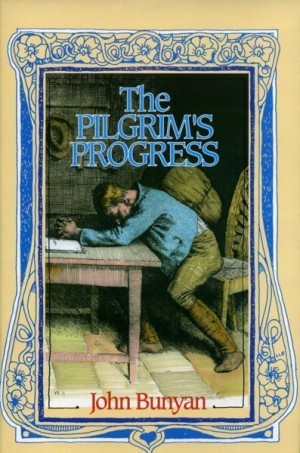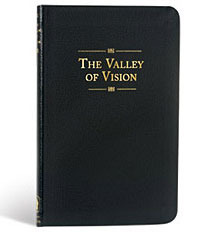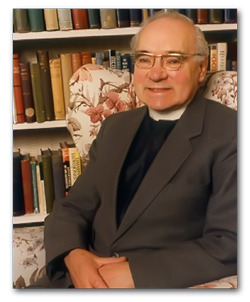Justin Taylor's Blog, page 149
July 15, 2013
What Is the Longest Book in the Bible?
Most resources claim that the book of Psalms is the longest book in the Old Testament, and therefore the Bible.
The claim is probably wrong.
If the calculation is based on the number of verses or the number of “chapters” or the number of pages, it is correct. But since those aren’t part of the original, they properly shouldn’t be considered to be the right criteria.
And if we’re being technical, English word-count shouldn’t be sufficient, either.
Here is a more refined set of date, courtesy of David J. Reimer (senior lecturer, Hebrew and Old Testament University of Edinburgh, who penned the notes on Ezekiel for the ESV Study Bible).
“Graphic units” counts the number of Hebrew words in a particular books using BibleWorks (e.g., there are seven “graphic units” in Genesis 1:1). “Morphological units” was found according to the Groves-Wheeler Westminster Morphological database (separates prefixed elements, but not pronominal suffixes; e.g., there are eleven in Genesis 1:1). The “Bytes” figure calculated the length of the Hebrew book in ASCII format (i.e., so there would be no interference from extraneous word-processor code).
Here are the results of the top 10:
Order
Book
# Verses in Book
Graph-unit Hits
Morph-unit Hits
Bytes
1.
Jer
1,364
22,285
30,203
241,209
2.
Gen
1,533
20,722
28,848
226,894
3.
Psa
2,527
19,662
25,465
238,562
4.
Eze
1,273
19,053
26,572
214,416
5.
Isa
1,291
17,197
23,204
191,777
6.
Exo
1,213
16,890
23,934
184,372
7.
Num
1,289
16,583
23,363
182,945
8.
Deu
959
14,488
20,329
159,872
9.
2Ch
822
13,520
20,000
154,125
10.
1Sa
811
13,506
19,211
147,392
Homosexuality & the Christian Faith: A Lecture by and Q&A with Rosaria Butterfield
Below is Rosaria Champagne Butterfield’s testimony—followed by a lengthy Q&A—at Holy Trinity Presbyterian Church (Tampa, Florida) on February 8, 2013, related to her book, Secret Thoughts of an Unlikely Convert An English Professor’s Journey into Christian Faith:
Homosexuality & the Christian Faith: A Lecture by and Q&A with Rosario Butterfield
Below is Rosaria Champagne Butterfield’s testimony—followed by a lengthy Q&A—at Holy Trinity Presbyterian Church (Tampa, Florida) on February 8, 2013, related to her book, Secret Thoughts of an Unlikely Convert An English Professor’s Journey into Christian Faith:
Islam 101: 6 Beliefs, 5 Practices, 2 Types, 4 Resources
Drawn from this post and this podcast from Zane Pratt.
Six Beliefs of Islam
“Islamic theology could be summarized as belief in [1] one God, [2] his prophets, [3] his books, [4] his angels, [5] his decrees, and [6] the final judgment. Islam teaches that humans are born spiritually neutral, perfectly capable of obeying God’s requirements completely, and that they remain this way even after they’ve personally sinned. The need of humanity, therefore, is not salvation but instruction; hence Islam has prophets, but no savior.”
Five Pillars of Islam
“These are composed of
the confession of faith (“There is no God but God, and Muhammad is his prophet”),
prayer (the ritual prayers said in Arabic five times a day while facing Mecca and performing the prescribed set of bowings, kneeling, and prostrations),
alms (taken as a tax in some officially Islamic countries),
fasting (the lunar month of Ramadan, during which Muslim believers fast during daylight hours but can eat while it’s dark), and
pilgrimage (the Hajj, or pilgrimage to Mecca, which every Muslim believer should make once in his or her lifetime).
Two Types of Muslims
“The two major denominations of Muslims are Sunni and Shi’a. Sunnis are the vast majority, at 85 percent of all Muslims. The split occurred in the first generation after Muhammad’s death and was based on a dispute over who should succeed him as leader of the Islamic community.”
Four Helpful Books on Islam and Ministering to Muslims
John Esposito, Islam: The Straight Path (4th ed., Oxford University Press, 2010)
Thabiti Anyabwile, The Gospel for Muslims: An Encouragement to Share Christ with Confidence (Moody, 2010)
J. D. Greear, Breaking the Islam Code: Understanding the Soul Questions of Every Muslim (Harvest House, 2010)
Robert Scott, Questions Muslims Ask: What Christians Actually Do and Don’t Believe (IVP, 2011)
July 13, 2013
An Abstract Interpretation of the Historical Christmas Narrative
July 12, 2013
Packer Asks, “Have You Yourself, I Wonder, Read It Yet?”
 J. I. Packer offers many of us a gentle rebuke:
J. I. Packer offers many of us a gentle rebuke:
For two centuries Pilgrim’s Progress was the best-read book, after the Bible, in all Chrisendom, but sadly it is not so today.
When I ask my classes of young and youngish evangelicals, as I often do, who has read Pilgrim’s Progress, not a quarter of the hands go up.
Yet our rapport with fantasy writing, plus our lack of grip on the searching, humbling, edifying truths about spiritual life that the Puritans understood so well, surely mean that the time is ripe for us to dust off Pilgrim’s Progress and start reading it again.
Certainly, it would be great gain for modern Christians if Bunyan’s masterpiece came back into its own in our day.
Have you yourself, I wonder, read it yet?
—J. I. Packer, “Pilgrim’s Progress,” in The Devoted Life: An Invitation to the Puritan Classics, ed. Kapic and Gleason (Downers Grove, Ill.: InterVarsity Press: 2004), p. 198.
If you’re looking for a classic and complete edition of the work, you can do no better than this edition produced by the Banner of Truth, which they describe as follows:
This de luxe edition of Bunyan’s great work comes as near as possible to the ‘ideal’—with the original marginal notes and references from Scripture, both parts of the Progress, and a series of magnificent and evocative etchings by William Strang. It is not a luxury to possess a de luxe edition of a work which, though we may not, like Spurgeon, read it a hundred times, ought to be the companion of a lifetime.
For those who want to study the book with a wise guide, note Leland Ryken’s forthcoming Bunyan’s “The Pilgrim’s Progress” in the Crossway Christian Guides to the Classics series.
Checklists for Effective Meetings and Persuasive Proposals
Convening and hosting an ineffective meeting, or presenting an inadequate proposal, is poor stewardship.
Here is a helpful checklist from David Pearl, author of Will There Be Donuts? Better Business One Meeting at a Time (forthcoming from HarperCollins in October).
First thing to check is…
Does this topic/issue require “a meeting” or could you simply meet?
If the answer is yes, check…
Why are we meeting?
If you’re satisfied, check…
Are the right people meeting – given the intent – and only them?
If you’re all present, check…
Who is leading this meeting?
If you are leading, check…
Are you stressing yourself by trying to run the agenda, keep time, take notes, direct the conversation all at the same time?
If you are listening, check…
Are you listening to . . . “the quiet voices”?
If everyone is fully engaged, check…
Are you being over-ambitious about timings?
If you’ve jettisoned all the excess baggage, check…
Are you mixing meeting types?
For an explanation of each point, read the whole thing.
For elders seeking to lead effective elder meetings, Alexander Strauch has written a whole book on the subject.
Also worth reading is John Piper’s brief paper on “Guidelines for Leading Leadership in Major Decisions.”
Here is an outline of his recommendations:
1. Pray without ceasing.
2. Meditate on the Word of God day and night.
3. Gather true information related to the proposal.
4. Think through as many implications of the proposal as possible.
5. Write the proposal including a coherent and orderly presentation of the proposal, an explanation of it, the implications, and the rationale.
First, state the proposal clearly and briefly in a few sentences.
Second, explain the proposal. That is, unpack its terms and make sure that it is clear.
Third, spell out the implications: people involved, time commitments, expenses, effects on present practices and people, etc. Foresee and state fairly and answer as many objections as you can.
Fourth, give a compelling rationale that would justify the implications and link the outcomes to the Vision.6. Give copies of this written proposal to the Leadership sufficiently in advance of the meeting at which it will be considered.
7. Read the proposal to the Leadership or read a coherent summary of its key parts at the meeting when it is to be discussed.
8. Seek a thorough discussion of the proposal, with all the Leadership urged to participate in the discussion. Allow the head of the Leadership group to guide the discussion to appropriate action.
Again, read the whole thing to see each guideline explained.
July 11, 2013
Where Do the Prayers Come from in “The Valley of Vision”? And Sundry Questions
 The Valley of Vision: A Collection of Puritan Poems and Devotions (available in paperback, leather, and audio) is a modern-day spiritual classic.
The Valley of Vision: A Collection of Puritan Poems and Devotions (available in paperback, leather, and audio) is a modern-day spiritual classic.
But few people know who was behind it, where the prayers come from, and how they were collected.
Here is an FAQ, based on what I can gather.
Where does the title come from?
Isaiah 22:1, “The burden of the valley of vision. What aileth thee now, that thou art wholly gone up to the housetops?” (KJV). This is also the title of the first prayer in the book—the best-known entry in the collection—beautifully written by the editor.
Who edited it?
 Arthur G. Bennett (1915-1994), an English-born minister, tutor, and author who loved to study the Puritans. You can read a biographical sketch written by his family here.
Arthur G. Bennett (1915-1994), an English-born minister, tutor, and author who loved to study the Puritans. You can read a biographical sketch written by his family here.
When was it compiled?
The research for the volume took years to complete. It seems that the work was done in the mid 1960s through early 1970s.
When was it first published?
The Banner of Truth Trust published it in 1975.
How many copies has it sold?
In the first 20 years (1975-1994), it sold less than 20,000 copies in the U.S. But it has now sold over 337,000 copies worldwide. Noting that Bennett died in 1994, Tony Reinke comments: “Bennett, like so many of the Puritans he drew from, did not live to see the scope of his book’s influence.”
Is the book in the public domain since it collects materials that are no longer under copyright?
No. This is based on a misunderstanding of Bennett’s work and the nature of the material. He did not select completed Puritan poems and simply copy them down, one right after the other. His is essentially an original piece of work, under copyright, representing years of research. Banner of Truth soon plans to publish an eBook version, but if you currently see copies on the web or eBooks being sold by other parties, they are being done so illegally (whether the distributor realizes it or not).
Are there sources in the book indicating where the prayers are from?
No, not for the individual prayers. All we know for certain is that Bennett composed the first prayer himself. Bennett tells us the authors and books he is quoting, but they are not keyed to the actual prayers.
How did Bennett compile the prayers?
He gives us a few clues: they are “drawn from the largely forgotten deposit of Puritan spiritual exercises, meditations and aspirations.” He writes, “A number of prayers were originally spiritual experiences, as in the case of Thomas Shepard, and some others are conflations from different sources to bind together a given theme.” Further, “A poetic form has been adopted throughout as an aid to easier comprehension and utterance.”
Has anyone done research to reconstruct where each prayer comes from?
Not to my knowledge. If this changes, feel free to let me know. I suspect it would be a major undertaking, perhaps almost impossible for many of prayers, as it is difficult to know just how much editing and conflating was involved.
Whom does Bennett quote?
Bennett indicates that the prayers are drawn from the works of the following men. I’ve added their dates:
Thomas Shepard (1605-1649)
Richard Baxter (1615-1691
Thomas Watson (c. 1620-1686)
John Bunyan (1628-1688)
Isaac Watts (1674-1748)
Philip Doddridge (1702-1751)
William Romaine (1714-1795)
William Williams [of Pontycelyn] (1717-1791)
David Brainerd (1718-1747)
Augustus Toplady (1740-1778)
Christmas Evans (1766-1838)
William Jay (1769-1853)
Henry Law (1797-1884)
Charles Spurgeon (1834-1892)
The “Puritan” label, and who should receive it, is disputed among historians. It generally refers to several variations of church reformers in sixteenth- and seventeenth-century England and America (roughly spanning 1560 to 1660). In the strict sense, “Puritan” should probably be reserved for those operating up until 1689.
That would make only the first four authors above “Puritans proper.” Since the majority of his sources are from the eighteenth century, it seems Bennett is referring to those who carried on the Puritan legacy of theology and piety. I suspect that someone like Spurgeon is not being quoted himself, but probably used for his quotations of the Puritans and their successors (which often appeared in his sermons).
What books in particular did Bennett use?
He lists the following. I’ve made some edits to his list for the sake of accuracy and sought to provide public-domain links where possible.
Baxter, Richard. The Saints’ Everlasting Rest .
Brainerd, David. Diary and Journal.
Bunyan, John. Grace Abounding to the Chief of Sinners .
Doddridge, Philip. The Rise and Progress of Religion in the Soul .
Rhyes Stephen, David. Life of Christmas Evans.
Jay, William. Prayers for the Use of Families.
Law, Henry. Family Prayers for Four Weeks.
Romaine, William. The Walk of Faith .
Shepard, Thomas. Works, vol. 3.
Spurgeon, Charles Haddon. The Pastor in Prayer .
Toplady, Augustus. Works, vol. 1.
Watson, Thomas. The Lord’s Prayer .
Watts, Isaac. Works, vol. 3, section: “A Guide to Prayer.”
Williams, William. Free translations from “Y Caniedydd Cynulleidfaol Newydd” [Welsh congregational hymnal, 1921] (See here.)
If I had to guess (without doing the original research myself), I suspect the works by Jay, Law, Toplady, Watts, and Williams are the most frequently cited, given that those works involve extensive prayers and hymns. But that may be a task for some intrepid researcher to confirm or refute!
Understanding the Muslim Worldview and Islamic Theology
Adam Francisco has a Ph.D. in Islamic-Christian relations from Oxford University and is professor of history at Concordia University in Irvine California.
His work on the history of Islam is nuanced and informed. As one online bio notes, “He has a unique ability to see and understand both the difficulties facing Christians who wish to evangelize their Muslim friends and the Muslims who are being asked to come to Christ. Many of his unique insights come from personal experiences sharing his faith with Muslims.”
To get a taste, see the first couple of videos produced by Modern Reformation below given some brief historical background. If that whets your appetite, you can view four lectures he gave at Faith Lutheran Church in Capistrano Beach, California, on (1) The Muslim Worldview; (2) Islamic Theology: Part 1; (3) Islamic Theology: Part 2; (4) Islam in America.
July 10, 2013
Thank You, ESPN
More stories like this, please, affirming the dignity of all human life at all stages of life:
Keep in mind the statistic that 85% of women with a prenatal diagnosis of Down syndrome choose abortion. (Read Owen Strachan
Justin Taylor's Blog
- Justin Taylor's profile
- 44 followers




